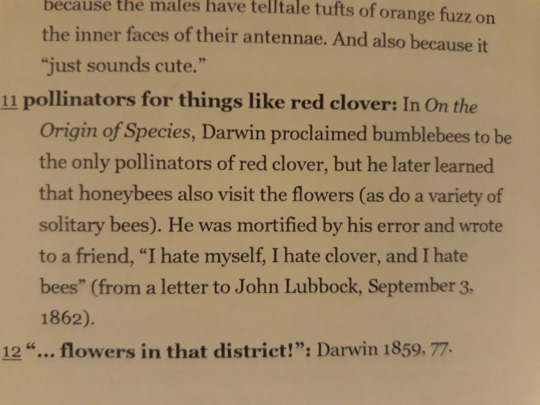Don't wanna be here? Send us removal request.
Text
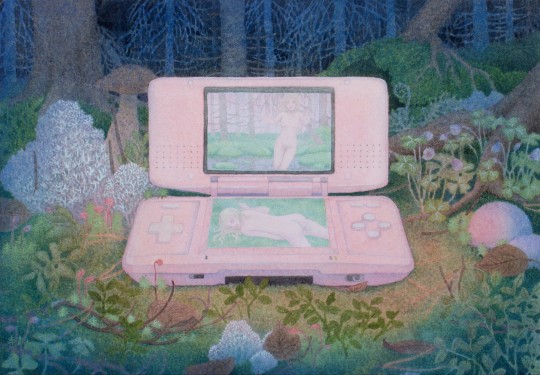
Oda Iselin Sønderland (Norwegian/Irish, 1996) - The Gift (2022)
1K notes
·
View notes
Text
There's an open pit in the middle of our office plan that drops down into a bunch of very sharp spikes that kill you instantly. This is bad. People keep falling in there and dying. Someone put a sign up, the other day, all bright yellow so you can't miss it, that says "Beware!!! Spikes!!!"
The office immediately split into two factions over it. One says that if anyone falls in the spike pit it's their own fault for being so stupid and not watching where they're walking, so we should remove the sign. The other says that the sign is an insult, there shouldn't be a spike pit in our office at all, and having the sign up like that is just normalising the existence of the spike pit, so we should remove the sign.
We ended up removing the sign. Probably for the better. Still... for a while there it looked like it might have worked...
120K notes
·
View notes
Text

Raspberries - Kate Jarvik Birch , 2024.
American , b. 1977 -
Goache on paper , 6 x 6 in.
156 notes
·
View notes
Note
Do you have any reading recs on the moralization of personality traits/“character”? No worries if not, I’ve just been following you for a while and you seem well-informed on this sort of thing!
A Weak Spot in the Personality? Conceptualising “War Neurosis” in British Medical Literature of the Second World War (2012). Roberts-Pedersen, Elizabeth. Australian Journal of Politics and History 58, no. 3, 408–420
Einführung: Zur Zeitgeschichte «abnormer Persönlichkeiten» (2020). Geisthövel, Alexa. Gesnerus 77, no. 2, 173–205. DOI 10.24894/Gesn-de.2020.77009
Temperamental Workers: Psychology, Business, and the Humm-Wadsworth Temperament Scale in Interwar America (2018). Lussier, Kira. History of Psychology 21, no. 2, 79–99. URI http://search.proquest.com/docview/1994023436/abstract/C75409A404C94775PQ/1
Die psychiatrische Begutachtung von Kindern mit «abnormen Reaktionen» in der Zürcher Kinderbeobachtungs station Brüschhalde 1957 bis 1972 (2020). Galle, Sara et al. Gesnerus 77, no. 2, 206–243. URI https://brill.com/view/journals/ges/77/2/article-p206_3.xml
A History of the Early Days of Personality Testing in American Industry: An Obsession with Adjustment (2008). Gibby, Robert E. & Zickar, Michael J. History of Psychology 11, 164–184
The African-American Personality: Early Conceptions (2014). Williams, Brian K. Journal of African American Studies 18, no. 4, 498–507. URI https://doi.org/10.1007/s12111-014-9282-9
The Ambivert: A Failed Attempt at a Normal Personality (2017). Davidson, Ian J. Journal of the History of the Behavioral Sciences 53, no. 4, 313–331. URI https://onlinelibrary.wiley.com/doi/abs/10.1002/jhbs.21868
personality 'typing' is also impossible to separate from physiognomy and phrenology, so the broader literature on the former two is also fruitful even if what you're after is the more specific manifestation of personality psychology :-)
74 notes
·
View notes
Text
hey everyone. so i've been playing the horse gacha game umamusume pretty derby. two things about umamusume are that at the end of every race the horses who won the race perform an idol concert, and that every horse girl has a ridiculous unaerodynamic vtuber outfit. and initially to me these were both things that are obviously silly but which you have to suspend your disbelief for because you can acknowledge the doylean reasons for having them. but actually they make perfect sense in universe.
umamusume textually have strength and speed that vastly exceeds that of any normal human. historically it would obviously have been massively impractical to apply the same gender role constraints to them that were applied to normal human women in many cultures. you need your horse women to both be allowed to go to war and want to go to war, and while obviously you do also want them to reproduce you don't want them to then spend years raising the kids, something normal humans can do, when they could be using their time on things normal humans can't do.
so i feel like in a lot of cultures there would be similar kinds of social developments to machismo but for horse women (horschismo) to incentivise their participation in physically dangerous activities, they would overall be subject to different social pressures and expectations from normal human women, and probably to varying extents they would often be considered a separate gender from human women.
however, like horses in real life, since the industrial revolution umamusume in industrialised countries have become an entertainment commodity when previously they would have been vital to labour and warfare. and being cute girls makes them more consumable as entertainment.
so obviously the idol shit is a deliberate 20th century invention to emphasise the girlness of horse girls, which both makes them more marketable and folds horse woman gender roles into the broader concept of "women" for everyone's social comfort. probably there is a lot of in universe scholarship on this and different umamusume have and have had a lot of different opinions about it. like i expect in the early 20th century there would have been plenty of umamusume who were totally hype to be able to be "normal girls"
now i'm being tongue in cheek here obviously. but also this IS the logical implication of the information presented in the franchise. if cygames didn't want me to come to these conclusions then they shouldn't keep showing us ancient egyptian depictions of bronze age horse girls and shit like that. hope you're having a wonderful day 🏇
1K notes
·
View notes
Text
realizing that sticking to the "do it bad" "do it scared" mentality implies theres also a "do it bored"

163K notes
·
View notes
Text
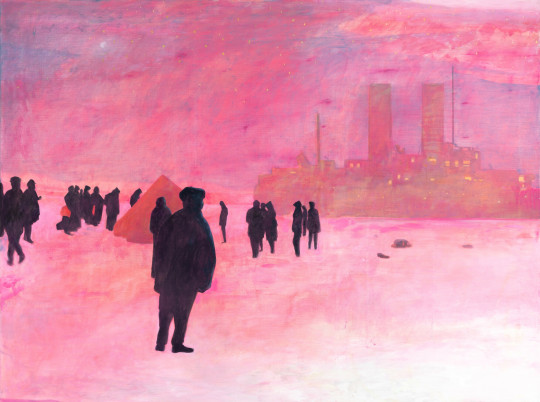
Jan Vanriet (Belgian, 1948), De overtocht [The Crossing], 2006. Oil on canvas, 120 x 160 cm.
2K notes
·
View notes
Text
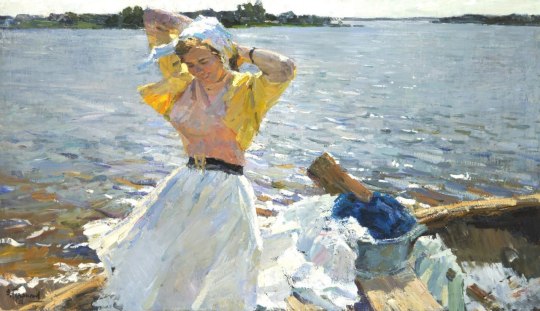
"A Breezy Day" by Vladimir Gavrilov (1958)
146 notes
·
View notes
Text
a mildly irritating internet phenomenon is people who have a fairly thorough understanding of particular aspects of history but seemingly no grasp of historiography or the process through which that history has reached current understandings
like sometimes i see people criticising historical inaccuracies in fiction from 50+ years ago without acknowledging that they're completely in step with historiography at the time. (and i'm talking ideas about social and political structure, not small details of material culture, so things that often go through big shifts in interpretation.) that WAS the mainstream take at the time and it's what the author would have learned from research. just because we now recognise it as "wrong" doesn't mean that author didn't do research or care about the worldview of their characters. they were in fact trying to do that in the context of the information and interpretations available in their time.
a work of historical fiction from the 1960s tells you about two histories: the one it's set in, and the one it was written in. if you only focus on the first one and completely ignore the second, you are failing to understand the book and its context entirely
some of this is also that many people underestimate how recent a lot of historical discovery and historiographical argument is. they see an "incorrect" idea from the 70s and assume it would have been viewed that way in the 70s when in fact major academic pushback was in the 80s on (or whatever)
like, taking my interest areas of medieval celtic studies... this field is YOUNG. a lot of the current historical and literary consensus developed not only within living memory but in the working life of scholars who are still alive/working. some of the biggest arguments and dramas involved colleagues of people i now personally know. a lot of it went down *just* before i was born, but that doesn't make it distant memory at all. everyone writing in the 80s was writing before that happened
all of this is part of why i hold historical fiction from 50 years ago to wildly different standards than historical fiction published today (another element is the significantly greater challenges to accessing research materials from outside academia pre-internet)
427 notes
·
View notes
Text

'Little Red Riding Hood' by Rei Kurahashi
453 notes
·
View notes
Text
these eBay photos read like a crime reenactment
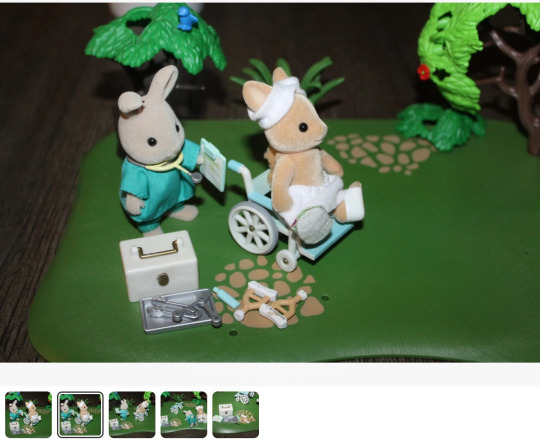
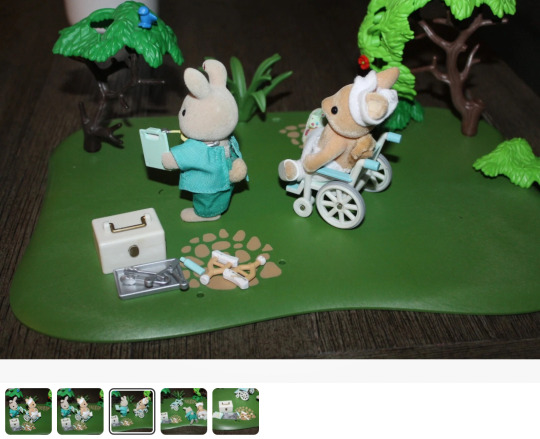


129 notes
·
View notes
Text
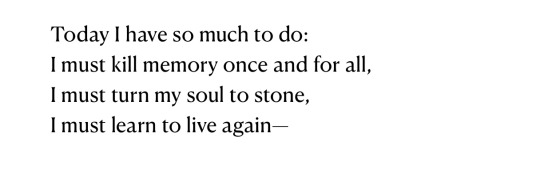
Anna Akhmatova, The Complete Poems of Anna Akhmatova: Reed; from ‘The Sentence’, tr. Judith Hemschemeyer
5K notes
·
View notes
